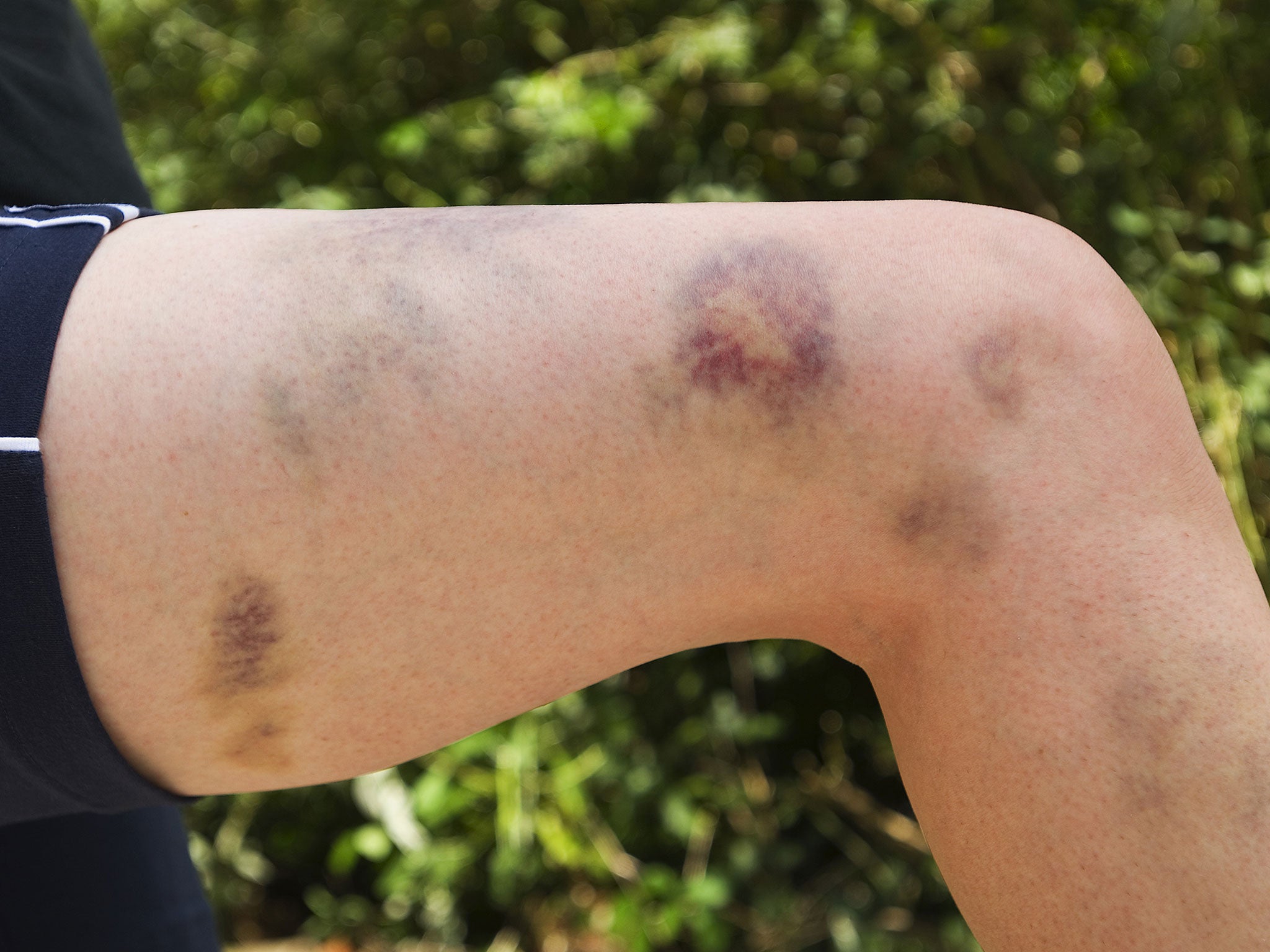World Haemophilia Day: Parents 'avoid reporting strange bruises to doctors for fear of child abuse accusations'
Study also finds that 20% of people associate childhood bruising with parental abuse

Your support helps us to tell the story
From reproductive rights to climate change to Big Tech, The Independent is on the ground when the story is developing. Whether it's investigating the financials of Elon Musk's pro-Trump PAC or producing our latest documentary, 'The A Word', which shines a light on the American women fighting for reproductive rights, we know how important it is to parse out the facts from the messaging.
At such a critical moment in US history, we need reporters on the ground. Your donation allows us to keep sending journalists to speak to both sides of the story.
The Independent is trusted by Americans across the entire political spectrum. And unlike many other quality news outlets, we choose not to lock Americans out of our reporting and analysis with paywalls. We believe quality journalism should be available to everyone, paid for by those who can afford it.
Your support makes all the difference.A significant proportion of parents would avoid seeking help for unexplained bruises through fear of child abuse accusations, increasing the risk of undiagnosed blood disorders, a leading charity has said.
Bruises are a key characteristic of blood disorders, but new research from the Haemophilia Society revealed 22 per cent of the population are unaware of the link. Unexplained bruising may also be symptomatic of certain cancers, but 20 per cent of parents would avoid seeing a doctor, with many saying they would be concerned about being reported to social services.
The findings, based on responses from a cross-section of the UK, also showed that one in five individuals would associate severe bruising in a child with parental abuse. Consequently, parents of children with the conditions have reported being subject to scrutiny and investigation by authorities.
Blood disorders including haemophilia and Von Willibrand disease affect the blood’s ability to clot, causing easy bruising, regular nose bleeds and in severe cases, internal bleeding.
Sian Skinner, a mother of three boys with Von Willebrand, was reported to social services last year after an individual voiced concern about bruises on her youngest son.
A sufferer of Von Willebrand herself, she said: “Social services were in my house within half an hour. I was told that my children may have to go into care whilst they investigated the allegation, and my eldest two children were formally interviewed in school.”
“The fear of someone saying they’re going to take your children into care is horrific.”
“It makes you feel as a parent you have to cover up your children because of what people think. It’s particularly hard at this time of year when shorts start to come out.”
The investigation lasted six weeks, and Mrs Skinner said she is now afraid to tell off her children in public, through fear it could be equated with their bruises.
A spokesperson for Oxfordshire County Council where Mrs Skinner and her family live stated they could not comment on individual cases, but take referrals relating to the potential injury of children, “extremely seriously” and “investigate immediately.” They added that they work with partner agencies, including health services, when possible.
Liz Carroll, Chief Executive of the Haemophilia Society said they now want to work with local authorities to improve awareness of blood disorders.
“There are already individuals in hospitals who have responsibility for child protection. We would like to start working with them to ensure bleeding disorders are prevented from being treated as child abuse. In the past, that has happened for parents of children with brittle bones.”
Dr Gerard Nolan, a consultant haematologist and chairman of the UK Haemophilia Doctor Organisation said although bleeding disorders are often genetic, all parents should look out for signs: “There are a lot of cases where there is not a family history and it comes as a complete surprise when a child is diagnosed. It may also not be apparent immediately at birth.”
Whilst most children tend to bruise on areas such as knees and shins, children with blood disorders can bruise anywhere, including hard-to-reach places like backs of the thighs, hip bones and spines.
Around 25,000 people in the UK have a bleeding disorder, with studies suggesting nine in ten sufferers of Von Willibrand, the most common condition, have not yet been diagnosed. Extended bleeding or bruising after injury, surgery, trauma or menstruation are often symptoms.
Liz Carroll added: “As this research shows people often jump to conclusions, but there are many different causes of bruising. It is important people don’t delay - and see a doctor to receive the right treatment as quickly as possible.”
Today is World Haemophilia Day. See the Haemophilia Society website for more information
Join our commenting forum
Join thought-provoking conversations, follow other Independent readers and see their replies
0Comments